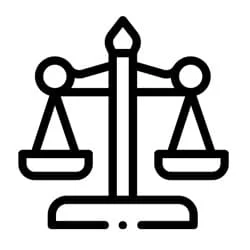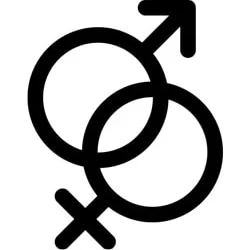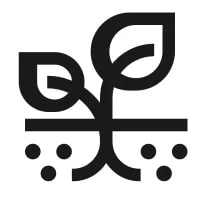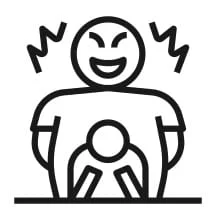Get Help With Your Criminal Case
Our mission is to connect Canadians charged with criminal offences to the resources they need to understand the criminal justice system and exercise their rights.
Canada Criminal Lawyer (“CCL”) is a legal resource and online directory website that connects Canadians with the source material and people they need to understand the criminal justice system. We are not a law firm and do not provide legal advice.
Canadians charged with criminal offences can call our toll-free phone number (855) 585-1777 to connect with a local lawyer, unaffiliated with CCL, who may be able to provide assistance and legal advice.

Potential Outcomes

Proceed to Trial
Trial dates are typically scheduled several months after the initial court appearance. During the trial, the judge carefully examines all the evidence, which includes witness testimonies. If there has been a violation of your rights, your criminal lawyer may submit a Charter Application to exclude evidence or request the dismissal of charges. This serves to safeguard your rights and ensure that any unlawfully obtained evidence is not taken into account.

Negotiate a Plea Agreement
The term "Crown" refers to the prosecution, representing the government, and presenting the case against the accused. It is possible for the defence and the Crown to achieve a resolution, often referred to as a plea agreement or negotiated resolution, either before or during trial. This happens when both sides mutually agree to an acceptable outcome instead of pursuing a complete trial.

Plead Guilty To a Lesser Offence
In such circumstances, when the accused individual recognizes their involvement in the offence but desires a more favorable outcome, they may elect to enter a guilty plea to a reduced charge. The specifics of the guilty plea are established through negotiations with the Crown or as part of a plea agreement.
You've Come to the Right Place
A criminal charge is a serious matter. Your ability to travel, get a job and your reputation are at stake. Speak to a criminal lawyer at no charge before you speak to the police. Most people charged with criminal offences will get a criminal record. Canada Criminal Lawyer will connect you with a criminal lawyer who will provide you with a free initial consultation and will make your rights our priority.
Call Canada Criminal Lawyer today, day or night, for a free consultation.
Criminal Offences

Sexual assault is defined by the Criminal Code of Canada as any form of non-consensual sexual contact or activity that violates the victim's sexual integrity, regardless of the specific body part involved.

Impaired Driving refers to the operation of a motor vehicle while impaired by alcohol, drugs, or both. It's a charge based on evidence (indicia) of impairment, like irregular driving patterns, bloodshot eyes, coordination issues or slurred speech.

Young offenders are individuals aged 12 to 17 who are accused of committing a crime. The Youth Criminal Justice Act (YCJA) ensures that the rights of young offenders are upheld by governing the legal process.

Fraud
Fraud is the deliberate use of deceit, falsehood, or other fraudulent methods to deceive the public or individuals and gain personal benefit in terms of money or property. Examples of fraudulent activities include identity theft, tax evasion, insurance scams, telemarketing fraud, and embezzlement.

Possession of narcotics is legally defined in Part 1, section 4(1) of the CDSA as the act of having a substance listed in Schedule I, II, or III unless authorized by regulations. To establish guilt, it is crucial for the prosecution to demonstrate that the accused had knowledge of the narcotic substance.

Operating a conveyance in a manner that endangers the public given the circumstances (e.g., traffic, road conditions, visibility). Reckless driving, excessive speeding, racing, and ignoring traffic signs or signals are examples of dangerous driving.

Criminal harassment is roughly defined under section 264 (1) of the Canadian Criminal Code as engaging in conduct without lawful authority that causes another person to reasonably, in all circumstances, fear for their safety or the safety of anyone known to them.
Introducing the Canada Criminal Lawyer Directory!
Designed by a criminal defence lawyer specifically for fellow criminal defence lawyers, this comprehensive directory is your one-stop solution for easy accessibility and utility. Whether you're a client seeking expert legal representation in your vicinity, or a lawyer aiming to expand your professional reach, this platform streamlines your search and connection process.
With the added advantage of a user dashboard that furnishes complimentary analytics, criminal lawyers can not only amplify their brand visibility but also understand their audience better. Choose from our three-tiered memberships—Free, Premium, or Affiliate—to suit your specific needs and preferences.
Take the next step in your legal journey with confidence.
Frequently Asked Questions
Those convicted of criminal offences sometimes have to pay large fines and court surcharges.
In addition to legal fees, your criminal lawyer might also charge you for out of pocket expenses known as "disbursements". This includes things like the cost of travel and printing. Many lawyers bill by the hour but some will offer a flat or fixed fee for service. Talk to a lawyer at a law firm near you about what financial arrangements are possible by calling 1 (855) 585-1777!
It could be a month or it could be years. It depends on the complexity of your case, available court time and other factors. Simple cases without a trial can normally be wrapped up within a few months. Complex cases that require a trial could take much longer. Your criminal lawyer can help time things so that your case doesn't drag on too long.
Telephone: (855) 585-1777
Getting Ready for a Criminal Trial: An In-Depth Guide for Defendants
Facing a criminal trial is an overwhelming experience for anyone. Whether this is your first encounter with the justice system or you’ve been through it […]
Read MoreCriminal Case Disclosure Explained: Your Rights and What to Expect
If you have been charged with a criminal offence, you have the right to know the case being made against you. One of the most […]
Read MoreUnderstanding Fitness and Criminal Responsibility Assessments
When facing criminal charges, you might encounter a situation where an assessment of your mental state is required. This could involve determining whether you are […]
Read MoreEverything You Need to Know About Self-Defence Laws in Canada
Self-defence is a fundamental right protected by Canadian law, enabling individuals to defend themselves and others when facing immediate danger. However, the legal structure surrounding […]
Read MoreNavigating Objections: A Guide for Those Facing Criminal Charges
Understanding objections is key in a trial, as they are vital tools lawyers use to ensure that the trial remains fair and just. Objections prevent […]
Read MoreUnderstanding Voluntariness in Criminal Confessions
Voluntariness is a crucial legal safeguard that ensures any statements or confessions given to someone in a position of authority are made freely and without […]
Read More








